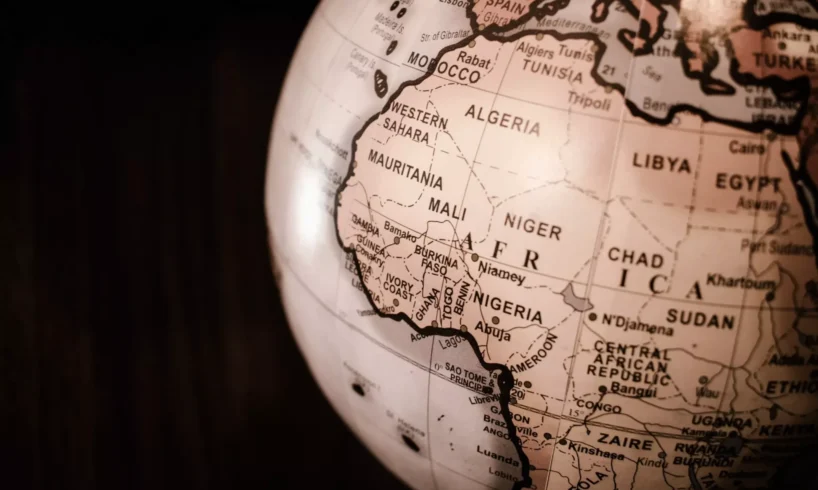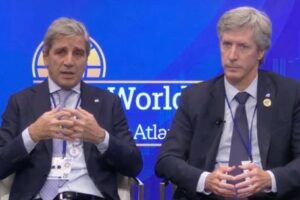
Today’s brief highlights key developments across Africa: In North Africa, Egypt introduces new investment incentives to boost FDI, Morocco expands defense cooperation with European allies, and Libya finalizes oil revenue transparency measures.
West Africa includes Nigeria’s parliamentary approval for $2.85 billion external borrowing and optimistic economic growth projections for 2026. Central Africa’s DRC advances mining code revisions amid regional stability efforts.
In East Africa, Tanzania implements post-election security protocols, Ethiopia receives an IMF funding disbursement, and advocates for enhanced Red Sea trade access. Southern Africa’s Namibia launches a major green hydrogen initiative.
North Africa
Egypt — New investment law targets FDI inflows
Egypt’s cabinet approved amendments to the investment law, offering tax breaks and streamlined approvals for projects in renewables, manufacturing, and tech sectors to attract foreign capital amid economic reforms.
Why it matters: The reforms enhance Egypt’s appeal to global investors, supporting currency stability, job creation, and integration into international supply chains.
Morocco — Defense pacts signed with EU partners
Rabat inked new agreements with France and Spain for joint military exercises and technology transfers, focusing on aerospace and cybersecurity to strengthen regional defense capabilities.
Why it matters: Enhanced alliances bolster Morocco‘s security posture, facilitate tech transfers, and open markets for defense exports while aligning with economic diversification goals.
Africa Intelligence Brief — October 30, 2025. (Photo Internet reproduction)
Libya — Oil revenue sharing mechanism agreed upon
Rival factions in Tripoli and Benghazi endorsed a unified framework for distributing oil revenues, overseen by the central bank, to reduce fiscal disputes and improve budgetary planning.
Why it matters: Transparent revenue management stabilizes Libya’s economy, attracts energy sector investments, and supports political reconciliation efforts.
West Africa
Nigeria — Parliament approves $2.85bn external borrowing
Lawmakers greenlit President Tinubu’s request for $2.85 billion in international loans to fund infrastructure and deficit financing, emphasizing sustainable debt management.
Why it matters: The borrowing supports key projects in transportation and energy, bolsters FX reserves, and signals confidence in Nigeria’s market access.
Nigeria — Economic growth forecasted at 3.5% for 2026
The central bank projected 3.5% GDP expansion driven by oil sector recovery, agricultural gains, and fiscal reforms, with inflation expected to moderate to single digits.
Why it matters: Steady growth projections enhance investor sentiment, improve sovereign ratings, and facilitate expanded credit to private sectors.
Central Africa
DRC — Mining code revisions to attract investors
Kinshasa unveiled updates to the mining code, including royalty adjustments and environmental safeguards, aimed at de-risking operations in cobalt and copper-rich regions.
Why it matters: Reformed regulations encourage FDI in critical minerals, support supply chain security for global tech industries, and contribute to economic stabilization.
East Africa
Tanzania — Post-election stability measures enforced
Following the general election, authorities extended security protocols and public holidays to maintain order, with President Hassan poised for victory amid opposition challenges.
Why it matters: Ensured stability preserves policy continuity, boosts confidence in infrastructure PPPs, and sustains regional trade partnerships.
Ethiopia — IMF disburses $1bn funding tranche
The IMF released a $1 billion installment under Ethiopia‘s extended credit facility, tied to macroeconomic reforms and debt sustainability targets.
Why it matters: The funding alleviates fiscal pressures, supports birr stabilization, and crowds in private investments for industrial and agricultural development.
Ethiopia — Renewed push for Red Sea port access
Addis Ababa intensified diplomatic efforts for equitable maritime access, proposing joint ventures with Eritrea to reduce logistics costs and enhance export competitiveness.
Why it matters: Secured access transforms Ethiopia’s trade economics, fosters regional cooperation, and unlocks potential in energy and manufacturing sectors.
Southern Africa
Namibia — Green hydrogen project secures funding
Windhoek announced $500 million in international financing for a flagship green hydrogen plant, partnering with German firms to advance renewable energy exports.
Why it matters: The initiative diversifies Namibia’s economy beyond minerals, attracts clean tech investments, and positions the country in global energy transitions.
Editor’s note: All headlines are new developments reported today. USD equivalents reflect today’s spot rates.





